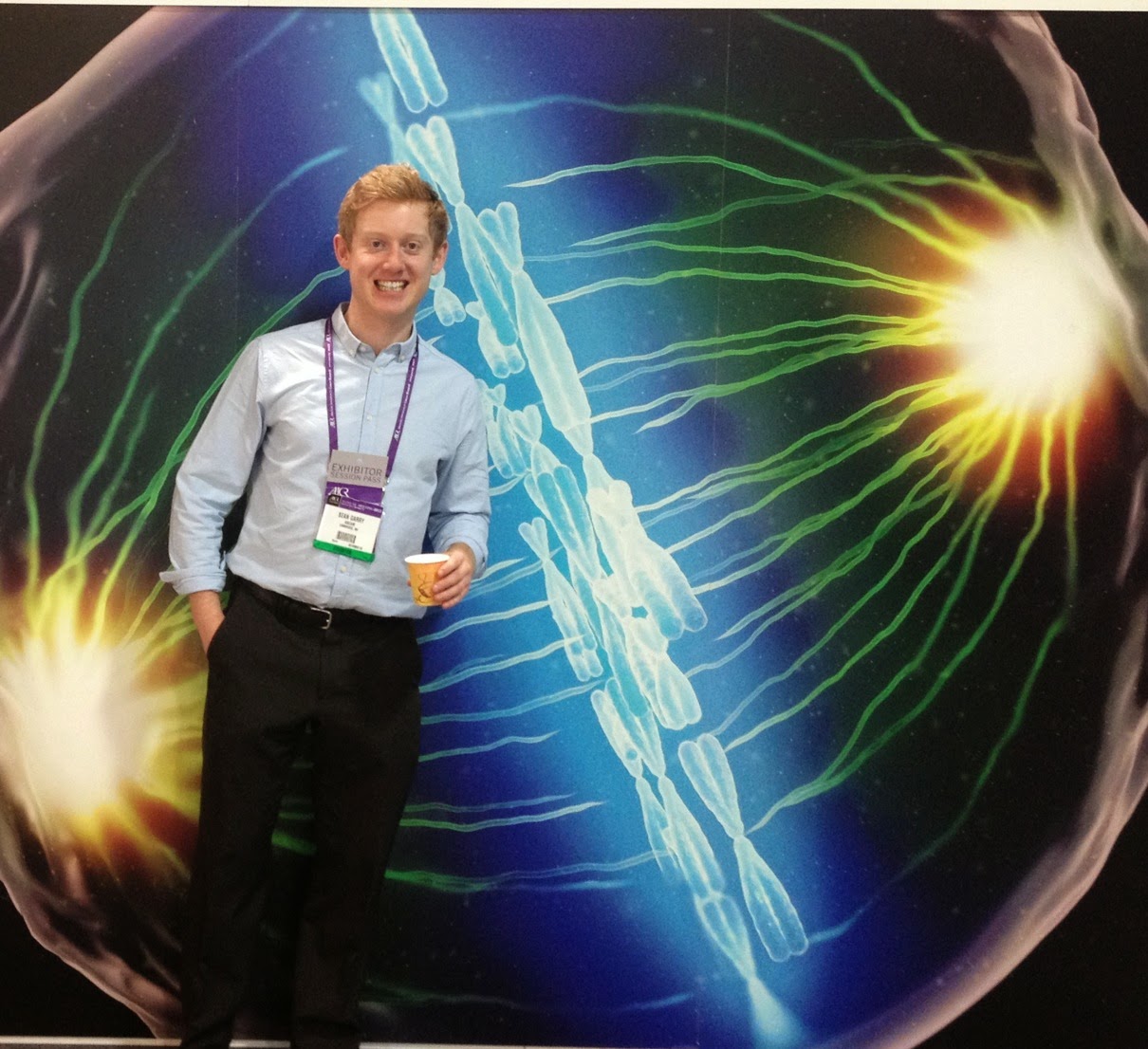Drink less coffee during your PhD
Today’s guest post is a contribution from Seán Mac Fhearraigh, PhD. Seán was a PhD student at University College Dublin & a post-doc a Cambridge University where he studied mechanisms of cell division. Currently Seán run’s an ELISA assay company where you can find some great information on ELISA assay protocols and ELISA kits.
Caffeine or 1,3,7-trimethyl-1H-purine-2,6(3H,7H)-dione 3,7-dihydro-1,3,7-trimethyl-1H-purine-2,6-dione (as it is chemically known according to IUPAC) is the fuel that runs the scientific community: it helps many scientists get through late nights in the lab, provides them some extra focus when they are fatigued and provides a common meeting point for Professors, Grad Students and Post-Docs to complain about life in the lab. Not even the lab rats are safe with nearly 5,000 publications found under “Rat AND Caffeine” in PubMed.Gov.
Not all of us, but most of us, become addicted to caffeine at some stage during grad school or our post-doc, if not worryingly earlier in our lives. You just have to attend a conference to see the addiction to caffeine is rife throughout the scientific community. Coffee before morning lectures, coffee during the morning break and lunch, and then some more coffee in the afternoon session break. Last year during the American Association for Cancer research, a biotech company that provided free coffee was one of the main attractions at the conference with up to 50 people waiting in line to get their free coffee constantly throughout the day.
Coffee does have some great benefits and has been shown to increase endurance during athletics and increase focus following tiredness. However, not everyone drinks the prescribed doses of coffee everyday, with many drinkers consuming a few cups to keep them alert so they can get through the daily slog counteracting some of the benefits associated with coffee consumption.
During my PhD, I became dependent on coffee: without my caffeine kick in the morning at about 10:30 am I found it impossible to get through the day. Getting that first coffee in the morning was consuming and prevented me from starting many experiments and made me make half-hearted attempts to start assays in the morning. The mention of coffee by a lab mate would instantly make me drop what I was doing and run downstairs to the coffee shop and order a double shot Americano. There was no experiment that I would not stop, delay or bin just to get that coffee and potentially a muffin. They had a great deal on of coffee and a muffin for 3.50 pounds so how could I resist! Caffeine, sugar and fat was to power me through the rest of my experiments for the day. Following my strong coffee I would get a rush of adrenaline, feel more anxious and stressed, and look for options around me not to do lab or desk work. Ironically, I was looking for caffeine to give me a boost or energy to perform my experiments, but instead it made me sometimes lose focus, become jittery and anxious. According to the NIH caffeine too much caffeine can result in: restlessness, anxiety, and irritability. It may also keep you from sleeping well and cause headaches, abnormal heart rhythms, or other problems.
And that was just morning… By the time 3’o clock arrived, I would be on the slow and painful caffeine slump, assays were now harder to set up, papers were harder to read and my stress levels were through the roof from not getting my experiments done because I went for coffee that morning. So what better way to combat the slump but go and get another coffee. Having another coffee would allow me to work a few more hours, or even into the night where I could catch up on where I missed out during the day. However, this time I would be more hyped up on caffeine and looking for any other distraction so I wouldn’t have to do some lab work.
Like weaning yourself off heroin, the withdrawal symptoms from caffeine can be headaches, anxiety, vomiting, sleepiness, muscle pain, depression and lack of concentration. However, if this meant that you would be less anxious, more focused on lab work and didn’t fear the small problems in the lab it would be worth it in the long run.
Looking back on my PhD and Post-Doc I definitely think I could have shaved a good few months off my 5 year PhD if I didn’t drink coffee and would have been more productive during my Post-Doc instead of running off for every little break to have a coffee. And who knows, I might have got that Nature paper!


I absolutely agree. Coffee is seriously addictive. And the worst is when you are outside of your routine and normal space. For example, when you are traveling and you cannot find a good cup of coffee at the right time, it can ruin whole days. The same is valid, to varying extents about other caffeine containing drinks, including Coke, Pepsi, energy drinks (totally bad for you!), even some teas.The good news is that usually it takes a few (grumpy) days without coffee to stop. But, just as with cigarettes, the social pressure to start again, is enormous. I drink hot chocolate.
I know – I must say that as mother of a baby, coffee is what keeps me going. I'll have to work to drop the habit once she starts sleeping better.